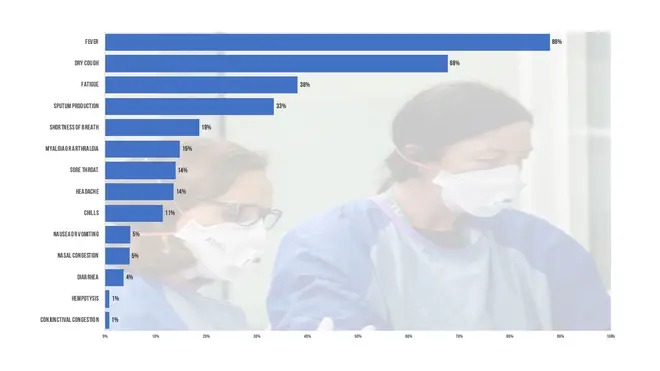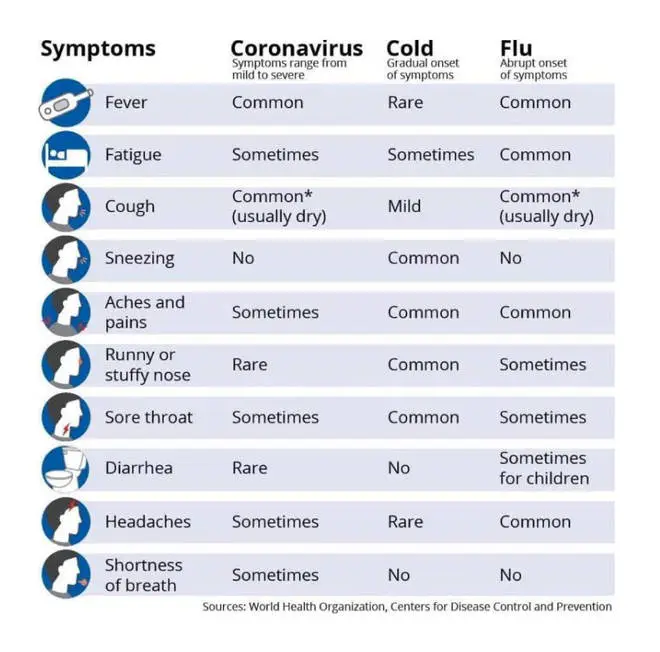
Ian Payne 4am - 7am
17 March 2020, 07:18 | Updated: 7 June 2023, 08:56
The government is asking anyone who has a cough or fever to stay at home in an attempt to delay the spread of coronavirus.
As the government moved into the "delay" phase, Boris Johnson announced a series of new measures to move the peak of the coronavirus epidemic further into the summer when the NHS is more able to cope.
This is the government's official advice for what to do if you have symptoms of coronavirus.
- If you have symptoms of coronavirus infection (COVID-19), however mild, stay at home and do not leave your house for 7 days from when your symptoms started.
- If you live with other people, they should stay at home for 14 days from the day the first person got symptoms.
- This action will help protect others in your community whilst you are infectious.
- Plan ahead and ask others for help to ensure that you can successfully stay at home.
- Ask your employer, friends and family to help you to get the things you need to stay at home.
- Stay at least 2 metres (about 3 steps) away from other people in your home whenever possible.
- Sleep alone, if that is possible.
- Wash your hands regularly for 20 seconds, each time using soap and water.
- If you live with someone who is 70 or over, has a long-term condition, is pregnant or has a weakened immune system, try to find somewhere else for them to stay for 14 days.
READ MORE: Travel advice - can I still go on holiday during coronavirus outbreak?
The government have asked people with mild symptoms to NOT call NHS 111, but use self-isolate and use the internet to get more information. They say that will put too great a burden on the system.
If your symptoms worsen during home isolation or are no better after 7 days contact NHS 111 online. If you have no internet access, you should call NHS 111. For a medical emergency dial 999.
Explaining the advice to self-isolate for seven days if people have a cough or temperature, Chief Medical Officer Professor Chris Whitty explained the reasons as he understood it was "something which will interfere with their lives and interfere with their work and their social life in quite significant ways".
However, he said "it helps to protect older and more vulnerable people" they might come into contact with and would also reduce, and possibly delay, the peak of the epidemic, making it easier for the NHS to cope.
He added that the virus appeared to have its maximum transmission at the time the first symptoms emerge and for two or three days afterwards before then rapidly declining.
"By seven days the great majority of people are not infectious and it is fine for them to go back into society," he said.
The reason people should stay at home for 14 days if they live with someone is to ensure that all members of the family are over the contagious period of the disease before leaving the house.

Different people who have coronavirus get different symptoms. Here's a helpful guide to what symptoms are most likely with COVID-19.
There are two symptoms that the majority of people who contract coronavirus get: a fever and a dry cough.
Other symptoms that some people get are extreme fatigue, mucus and a shortage of breath.
It is worth remembering that the death rate for coronavirus is around 1%, which means that 99% of people who contract COVID-19 will recover.

After a study of 55,000 confirmed cases in Wuhan, China, they found patients had the following symptoms.
Fever: 87.9% of cases
Dry cough: 67.7%
Fatigue: 38.1%
Mucus/sputum production: 33.4%
Shortness of breath: 18.6%
Sore throat: 13.9%
Headache: 13.6%)
Muscle or joint pain (myalgia): 14.8%
Chills: 11.4%
Nausea or vomiting: 5.0%
Nasal congestion: 4.8%
Diarrhea: 3.7%
Coughing up blood (hemoptysis): 0.9%
Red eyes (conjunctival congestion): 0.8%

The graphic above shows the difference in symptoms between coronavirus and having the flu or a cold.
If you have coronavirus, you are likely to have a fever, dry cough and feeling very fatigued.
If you have a cold, you are likely to sneeze, have a runny or blocked nose and a sore throat.
If you have flu, you are likely to have a fever, fatigue, headache, a cough and aches and pains.